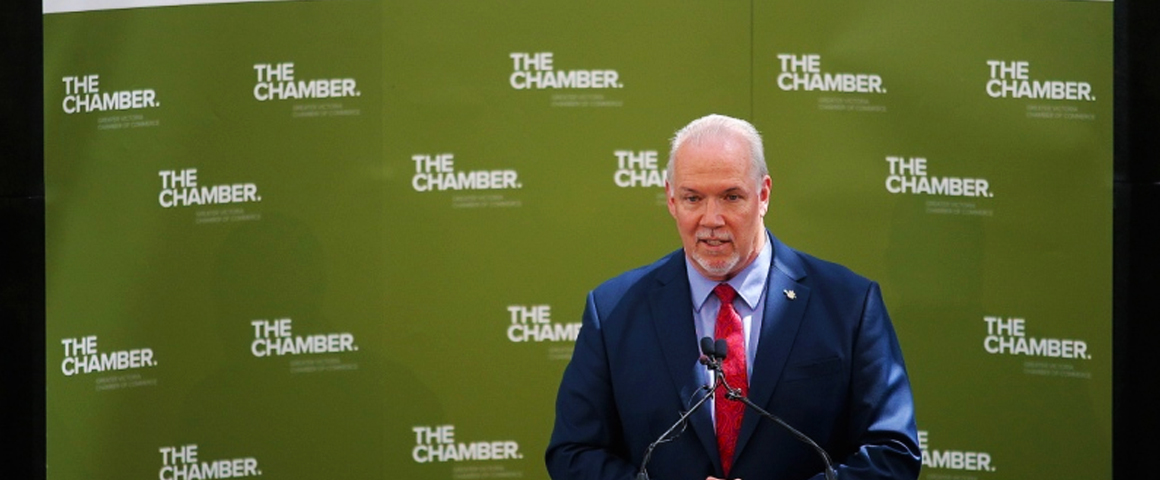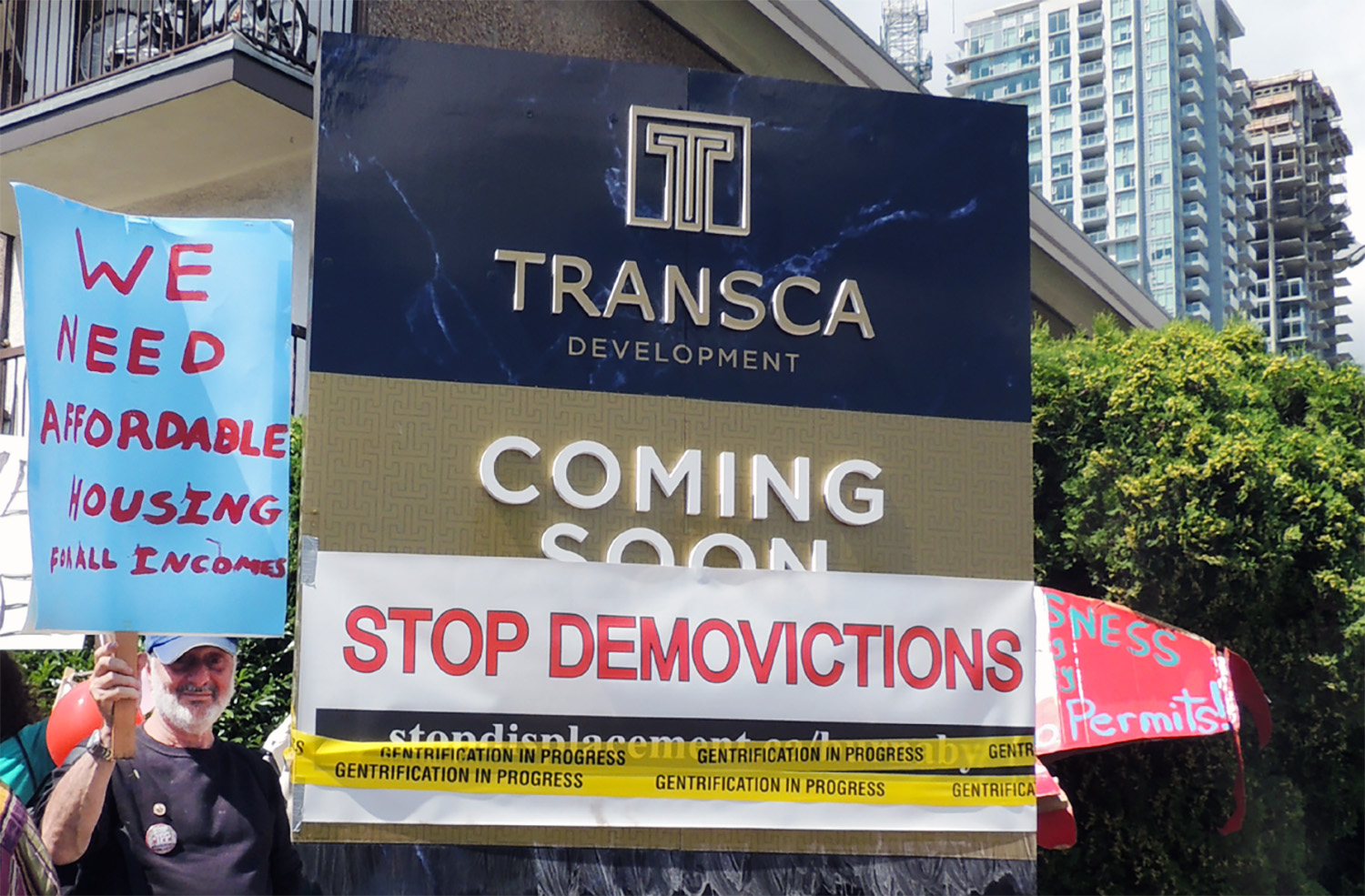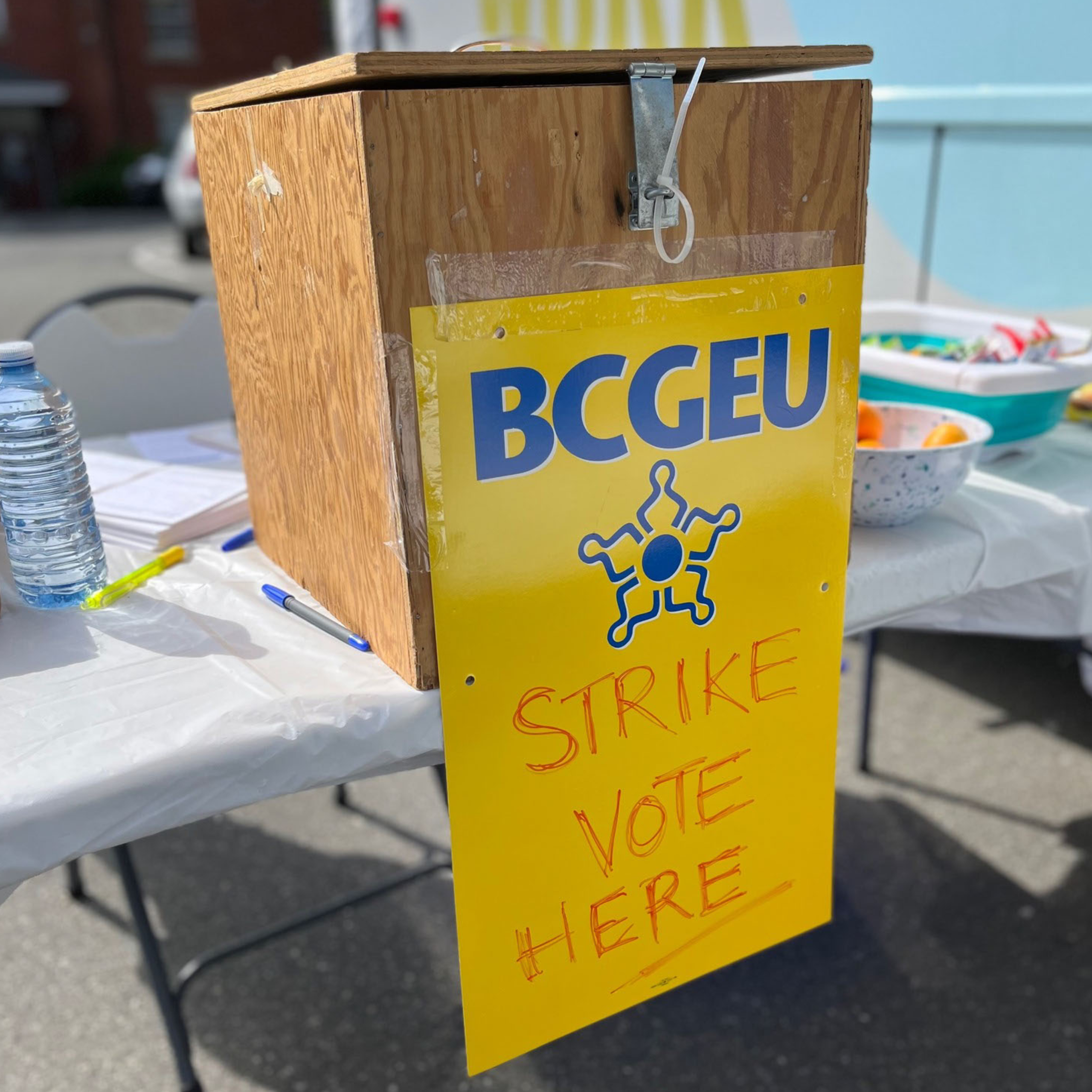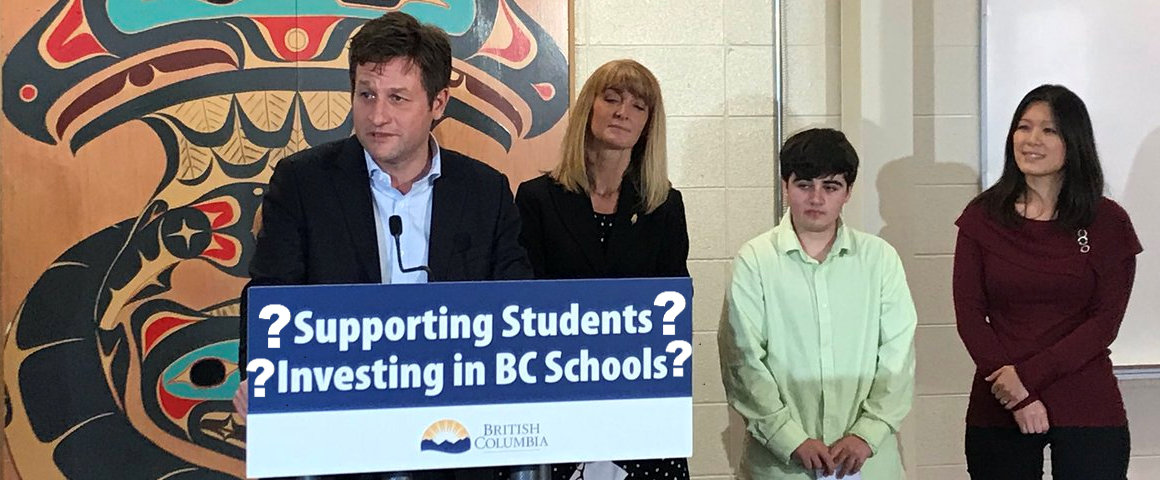The first anniversary of BC’s new NDP government, backed by three Green Party MLAs, is coming up in July. A year ago this month, Christy Clark’s defeated BC Liberals were still desperately clinging to office, even presenting a Throne Speech based on the NDP’s campaign platform. That bizarre gambit failed. John Horgan became premier, while Clark soon abandoned her promise to remain as Opposition leader.
Since then, the NDP government and its Green partners have brought forward a budget addressing some of the most vicious cuts imposed by the Liberals. Social assistance and disability rates have increased, and the minimum wage is on the way up, although in both cases not nearly as much as anti-poverty activists have demanded. More funding has been provided for a range of programs, from child care to health and public education, but again falling short of the growing needs of working people.
One widely condemned move by the Horgan government was its decision to finish the controversial Site C dam, which will flood valuable agricultural land and violate the treaty rights of First Nations in northeastern BC. That move was said to be in the name of “fiscal responsibility,” since cancellation would cost taxpayers several billion dollars.
All these and many other policy initiatives by the Horgan government have been adopted in the context of claims that the province lacks sufficient revenue to make more radical change possible. Some progressive movements, and the Communist Party of BC, have argued all along that the best way to boost provincial revenues was to reverse the huge tax breaks for corporations and wealthy individuals. Brought in by former Libeal premier Gordon Campbell after his first victory in 2001, these breaks add up to an estimated $2.5-3 billion annually, but the NDP has refused to consider anything more than token measures to claw back some of this vast wealth.
Instead, the NDP has looked for ways to push at the margins, such as its “thirty step” plan to address the housing crisis. Overall, the new government remains fairly high in the polls, but some of these steps have generated anger in certain areas.
For example, the 2018-19 budget includes a “school tax” increase. This special surcharge of 0.2% on the value of homes worth over $3 million, and 0.4% on homes valued at over $4 million, would bring in $250 million over the next three years. But it has sparked a revolt by some residents of areas like the west side of Vancouver, where the spectacular rise in home prices over the last two decades has turned many into “house rich” millionaires, at least on paper.
One argument is that the school tax unfairly hits people with relatively low incomes, such as seniors. Others say that their now-expensive homes are their only pension plan. The government points out that the surcharge can be deferred for seniors or families with children, and that it mainly affects those whose assets have grown wildly during the real estate boom.
It is true that the surcharge seems unfair to many working people who struggled for decades to buy a home, and then were lucky enough to see its value rise. But one must ask: what kind of society bases its pension plans on real estate bubbles? What happens when that bubble inevitably bursts? And what about working class and poor people, the renters who never had a down payment or a well-paying stable job to allow them to buy a home? Do their rent payments become the “pensions” of rich landlords and real estate developers? Shouldn’t the government’s priority be to fix the shredded social safety net for those in greatest need?
Many of these debates could be resolved quickly if the NDP reversed the Campbell tax cuts. The resulting revenues could have halted the Site C dam immediately, and put billions more into health, education, social assistance, and public transit. Similarly, if the government simply stopped giving taxpayer dollars to elite private schools, the controversial school surcharge might be unnecessary. But the NDP refuses to consider such policies, which of course would enrage the wealthiest sections of the population.
Now, another shocking revelation about budget and fiscal policy in BC has come to light. Environment and resource policy analyst Ben Parfitt, from the BC office of the Canadian Centre for Policy Alternatives, reports that resource corporations are paying much less in royalties today than a decade ago, and that the new government has amended the Petroleum and Natural Gas Act to prevent the public from knowing the details.
In 2008, Parfitt says, the province received $1.16 billion in royalties on fossil fuel production. By 2017, natural gas production in BC had increased a whopping 72%, and other categories of fossil fuels even more quickly. Most of this higher output was piped to Alberta’s tar sands industry. But thanks to huge subsidies from the province, the companies were paid only $147 million in royalties in 2017 – a decline of almost 90 percent.
Parfitt estimates that over the last decade, British Columbians lost out on about $5 billion in falling royalty revenues. His report is available online and worth reading (http://vancouversun.com/opinion/op-ed/ben-parfitt-british-columbians-shortchanged-billions-from-fossil-fuel-industry-revenues).
The NDP government claims it can’t afford to roll out its new child care plan in less than a decade, or to raise social assistance rates more quickly, or to build enough low-income housing to end homelessness, even when the money is right there in front of our eyes. Clearly the rich still have far more clout on the west coast then the rest of us, even when Horgan’s cabinet includes a number of labour and social justice advocates. That’s the story of social democratic governments everywhere in the “advanced capitalist” world.
(Cariou is the editor of People’s Voice. He was a Communist candidate in Vancouver-Hastings in the 2017 provincial election.)




